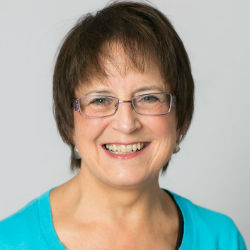 Norine Dagliano, ekm Inspirations, has been supporting and guiding professionals through career transition for more than three decades. In recent years, she has taken an active role in mentoring and training resume writers who wish to excel in the industry.
Norine Dagliano, ekm Inspirations, has been supporting and guiding professionals through career transition for more than three decades. In recent years, she has taken an active role in mentoring and training resume writers who wish to excel in the industry.
Her recent achievements include developing the curriculum and serving as the exclusive instructor for the National Resume Writers’ Association’s flagship Writing Excellence program, an 11-week course aimed at building the skills of both new and experienced resume writers.
1. What led you to writing resumes? Do you have a background that made you an ideal fit for the industry?
I entered the career services industry in 1984 when I was hired as an employment consultant with a county government agency that was funded by federal dollars (the Job Training Partnership Act, or JTPA).
At the time, our primary caseload was welfare clients; the federal government had just launched Project Independence (the latest “innovative” program to transition welfare clients to jobs). Later we began picking up dislocated workers from company closures and layoffs and our services expanded, with a higher need for professionally written resumes.
I pretty much stayed in this line of work until 1999.
My career path included running a student retention program at a local community college, a brief gig as a job placement director at a private business school and another long-term gig at a different county government employment and training agency, where I was working when JTPA began the transition to a new government program funded by the Workforce Investment Act (WIA.)
Clearly, my background was an ideal fit for the industry.
Assisting individuals with their job search or executing my own job search is pretty much all I have done.
While working for my last employer, they sponsored me to complete training and earn the Certified Professional Resume Writer (CPRW) credential.
After losing that job, I decided to go into business for myself. I tried to change industries and pursue my other interests, but the career services industry was what I knew best; plus, I already had a network and foundation in place, so I decided to leverage that.
2. What is the single best tool you recommend for building client relations? Building your business? Improve efficiency?
I recommend two essential first steps to build your business:
-
- Develop a written marketing plan (I failed to do this, and as a result, I wasted a lot of time and money wandering aimlessly).
- Invest your time and money into having a professionally designed website (remember, you only have one chance to make a good first impression).
Join at least one career services association and volunteer to support the association. Attend one convention a year.
Pursue formal training (it’s not enough that you have a resume, have looked at a lot of resumes, and have helped friends and coworkers with their resumes).
Get certified; I added Nationally Certified Resume Writer (NCRW) and Certified Federal Resume Writer (CFRW) to my credentials. Having industry credentials distinguishes you from the thousands of resume writers toting their services.
Never get complacent that you already know all you need to know; stay connected and keep learning. I could think of two dozen more, but these are the basics that are most critical.
Some tips to prevent burnout and keep from losing your mind:
- Define your ideal client and stop trying to be all things to all people.
- Set clear boundaries and respect them. Unfortunately, I failed to do these things at the start and, as a result, I learned lessons the hard (and sometimes costly) ways.
- Ask your colleagues for support and guidance, and offer it in return.
There is plenty of work to go around, so set aside any mistaken belief that we are competitors.
3. If you could share one learning experience/great lesson, what would it be? What would you have done differently? Done the same?
If I must narrow this down to “one great lesson,” it would be to establish clear boundaries and then respect those you have set.
One thing I would have done differently is to define my ideal client and learn to say “no” (or refer to a colleague) those who do not fit that definition. Something I would have done the same: Join the NRWA and attend the annual conference.
4. How do you see our industry transforming over the next 12 months? 5 years? What do think resume writers need to know to survive?
I see technology playing a bigger and bigger role in how job candidates are located, screened and hired.
I expect social media to outpace job boards as a source for finding talent.
I think resume formats will evolve and include far more graphical/visual elements with tighter written content.
For us to survive, it is critical that we keep learning.
We need to keep up to date with technologies and trends.
Resume writers are popping up everywhere – our competition is growing by leaps and bounds – we need to distinguish ourselves.
